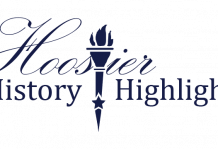A father and a son
His lived experience instilled in him a lasting ambivalence regarding circles of power and prominence, the two spheres that journalists most often probe. He thought those realms were dangerous places for human beings of modest birth to explore.
He had come by this wariness honestly.
He was a child of the Great Depression. Those years marked him in ways that stayed with him all his days.
When he was a toddler, a family tragedy placed him and his older brother in an orphanage for years. Another family agreed to care for his younger brother, then moved away without leaving a forwarding address, my infant uncle still part of their household.
When my grandfather had weathered the worst of the ordeal, he brought his two older boys home and tried to locate the younger one. In the search, he found the authorities less than enthusiastic about helping a man struggling in hard times just to stay upright.
Dad took from all this that it was unwise, even unsafe, to count on impersonal authority to care about people who didn’t count for much. He also decided that many forces were too big to fight and that many hardships simply had to be endured, rather than resisted.
Although he did not think in those terms, my father was a fatalist.
He believed dreams were hostages, weapons that could be used to break his heart. He never let himself want anything too much.
If a worldview such as his denied him the upper reaches of life’s pleasures, it did give him a peculiar source of strength. When something went wrong for him, he did not waste much time on self-pity.
He just focused on how to live with misfortune.
When I was young and my interest in the ways the world worked—particularly why some people had power and others didn’t—began to grow, Dad struggled to come to terms with my fascination.
For years, he saw it as evidence that I was much more my mother’s son than his. Mom had been a civil rights activist before they married and continued to care about seeing all people fairly treated long after she and Dad divorced.
It was a matter of joking friction in their troubled marriage when I was little that Dad voted for Richard Nixon in the 1960 presidential election while Mom cast her ballot for John F. Kennedy.
Dad’s vote wasn’t a partisan one. He just didn’t trust people at the top of the ladder to care much about those on the lower rungs. He was wary of JFK, just as he would be guarded, even scornful, during the presidencies of both Bushes and Donald Trump. He thought of their existences—and their interests—as foreign from his own.
Early on, he doubted whether my career would take hold. He thought dealing with politicians was like dancing barefoot in a fire. Eventually, no matter how careful I was, I was bound to get burned.
When that didn’t happen, his concern evolved into mystification.
After he came to an event where I served as master of ceremonies and host to many of the state’s dignitaries, Dad pulled me aside.
“I don’t know how you got so you could do all this,†he said. “I don’t think it was your mother.â€
He paused.
“And I know it sure as hell wasn’t me.â€
He was mistaken about that.
Parents teach their children things without knowing it.
I didn’t inherit my father’s fatalism. Perhaps that is because my childhood was not the ordeal his was.
Other qualities, though, did come from Dad.
Like him, I tend not to get distracted by self-pity. I’m not as disciplined about it as he was—my instinct to accept and endure wasn’t forged in fires as hot as his was—but my determination to see things as they are is his.
When I encounter a setback, I indulge in a brief period—briefer and briefer as I grow older—of feeling sorry for myself.
Then I accept the challenge for what it is and step forward to meet it.
Dad died earlier this year. He met his end, not surprisingly, with stoicism.
He has a birthday coming up, my first without him. I miss him, but I often don’t show it, even to those closest to me.
Yes, I am my father’s son.
FOOTNOTE: Â John Krull is director of Franklin College’s Pulliam School of Journalism and publisher of TheStatehouseFile.com, a news website powered by Franklin College journalism students. The views expressed are those of the author only and should not be attributed to Franklin College.




